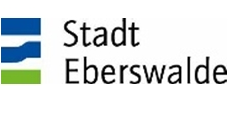Response Strategies: Mitigation of Global Change
Module description
(with Prof. Dr. Pierre Ibisch, Prof. Dr. Martin Guericke, Prof. Dr. Dieter Murach, Dr. Gerold Kier (Germanwatch e.V.), Christoph Bals (Germanwatch e.V.))
Response strategies to mitigate or to avoid dangerous and problematic global change are of critical importance. For example, in climate change action and policy, mitigation refers to reducing greenhouse gas emissions. In this module mitigation refers more broadly to negative impacts of global (environmental) change.
The module is structured in the following topics:
Rationale of mitigation (Martin Welp et al.), Mitigation options (Martin Guericke et al.), and Mitigation policies and communication strategies (Christoph Nowicki et al.).
Rationale of mitigation:
What would be the costs of unabated climate change? Costs can be measured in monetary terms, but what other approaches exist? The students will be introduced to the concept of Disability-Adjusted-Life-Years. A widely applied method is the cost-benefit-analysis. Can socially and politically preferred stabilization levels be deducted from such studies? How reasonable is the 2 degree target advocated by many scientists and politicians?
Mitigation options:
A great number competing mitigation options are currently discussed on various scientific and political fora. These include among others energy saving, various technological options for energy production (coal, nuclear, renewables, such as wind, biomass, and solar) and related energy carriers (such as hydrogen), options to sequester by afforestation as well as so called geoengineering options (iron fertilization, sulphur injection in the atmosphere, mirrors orbiting the earth, etc.). Along with the technical aspects come several geopolitical considerations, questions of costs, associated risks and power relations (e.g. decentralized vs. centralized energy systems). There is no agreement on the relative advantages and disadvantages of each option. In this module, a focus will be on biomass related mitigation options. The role of bioenergy within the renewable energies and its potential to sequester carbon is evaluated. Legal framework, potentials, economy and ecology of selected biomass production systems are outlined as well as their associated risks for biodiversity, food production and water availability. Ongoing bioenergy research projects of the FHE on short rotation crops and biochar are integrated into the course and will serve as practical examples of biomass production systems.
Mitigation policies and communication strategies:
This part covers the question of how to present scientific knowledge in an understandable way and to ‚Äútranslate‚ÄĚ it into the logic of different actors in the political, finance, business and technology sector with the aim to prevent dangerous climate change, thus defending an essential global public good. Central contents are: How to make (as an NGO) scientific knowledge (on climate change) relevant for the political, finance, business and energy as well as the technology sector. The main part of this topic will be taught as a oneweek block by Germanwatch in the city of Bonn.










